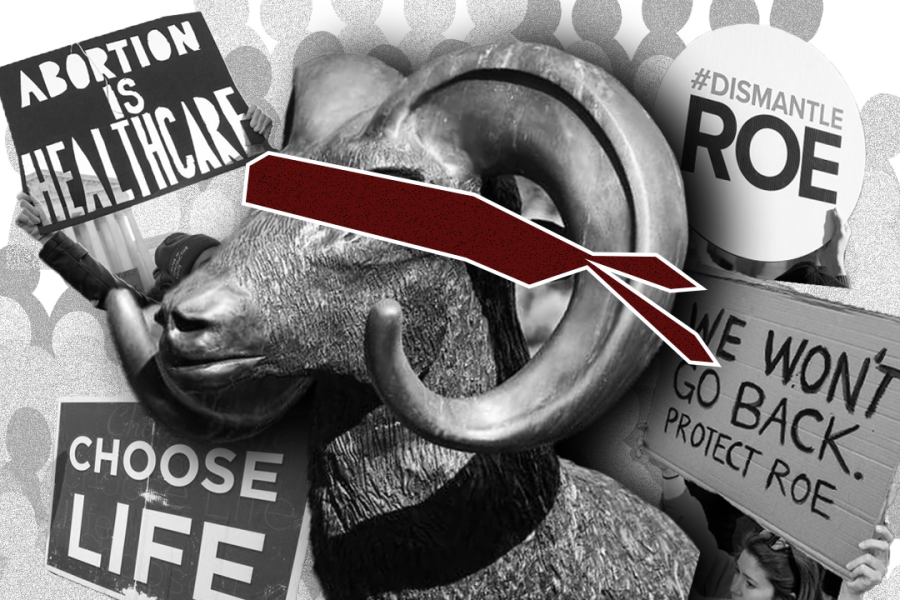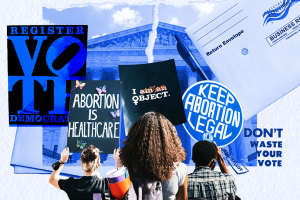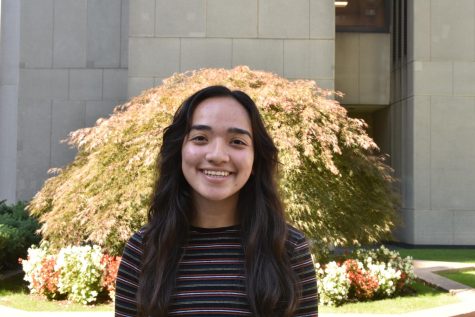Reproductive Rights: What Can We Actually Expect From Fordham?
Fordham’s lack of a statement regarding the overturning of Roe v. Wade shouldn’t come as a shock
August 31, 2022
The Supreme Court overruled Roe v. Wade in June, and many universities, religious and secular alike, issued statements in response. But Fordham’s administration stayed quiet.
For students who don’t check their school email in the summer, or who haven’t been closely following reproductive rights news, the lack of a statement might not mean much. Other Rams, however, believe that the lack of statement in support of students’ rights is not in accordance with Fordham’s key values, such as cura personalis, which means “care for the whole person.”
Some students expected Fordham to release a statement criticizing the ruling and supporting student reproductive rights. However, as Fordham is a Jesuit institution, I do not think we can or should make such demands.
Schools like the University of Michigan and the University of California released statements criticizing the decision and supporting the reproductive rights of students, which is to be expected from public universities in blue states. However, it is more reasonable and appropriate to compare Fordham to how other Catholic universities have responded.
The president of The Catholic University of America celebrated the decision, saying that he “rejects the unholy idea that there is a constitutional right to kill unborn children.” But other Catholic universities including Notre Dame University, Duquesne University and the Jesuit Marquette University released statements that could be considered neutral, citing things like “We must respect one another in moving forward from this decision, as we have on other issues which potentially divide us.”
Fordham students would do well to remember that their experience at a Catholic university in regard to this issue is not the same as all other Jesuit colleges due to its location. Louisiana, Indiana and Wisconsin are all states where abortion is banned or the ban will be in effect soon, whereas abortion is protected in New York. Statements on the Court’s recent decision are more appropriate for schools in states where abortion is currently more restricted than it is in New York.
While I don’t think religion should rule our country, what I don’t intend to do is argue with Catholic institutions, Jesuits or any Catholics about their morality and whether or not abortion is “right,” and I don’t think you should either.
In New York state and in the tri-state area, these health services are legal and accessible. Students may expect a statement from Fordham to support others who have lost the right to abortion, but the lack of statement from Fordham — which aligns the university with the Catholic Church on this issue — can itself be regarded as a statement. The most we could hope for in a written statement is one of neutrality and administrative language that tries not to alienate anyone.
There are secular universities in the United States that, unlike Fordham, provide birth control and, rarely, abortion services. At Tulane University, they even have sex week, a week of inclusive educational events about sexual and sex-related activities. Some students believe that Fordham should follow suit, and I agree that in an ideal world the university would provide free condoms and engage in conversations about safe sexual practices. But we attend a Catholic institution, and part of the package is that we cannot expect things that don’t align with principle teachings of the religion. One perk of being in New York City is that students can access free condoms at many Planned Parenthoods or NYC Health locations.
This does not mean that Rams should be content with the decision and do nothing. If you feel angry, this is the time to channel it into caring for others. Abortion is currently protected in New York, but it is an American issue. We should advocate for our peers in other states. There are several ways you can do this, including donating to abortion funds and independent clinics, voting, and protesting. While I don’t think religion should rule our country, what I don’t intend to do is argue with Catholic institutions, Jesuits or any Catholics about their morality and whether or not abortion is “right,” and I don’t think you should either.
As a non-Catholic at a Catholic school, there are times when I disagree with university policies and also individual administrators or professors who discuss these beliefs, such as the decision in question. However, there are several reasons I think there are better ways to take action than arguing in circles with people who have a stronger commitment to the principles of their faith than I do. The official statement from the Society of Jesus (the Jesuits) on the overruling of Roe v. Wade celebrates the decision, but I encourage everyone who is outraged to continue reading.
“We also affirm our belief that building what Saint John Paul II called a ‘culture of life’ requires a stronger social safety net than our country has today,” the statement said. “To be truly pro-life, we must support all women, expectant parents and their children by advocating for policies like universal health care, paid parental leave and a more equitable distribution of our country’s abundant resources.”
I’m sure many pro-choice people and many Fordham students would agree that our country requires a stronger social safety net. We should advocate for stronger social policies and better distribution of our country’s funds. That safety net is what I think is important to focus on. Instead of creating animosity in a situation where changing others’ minds is extremely unlikely, it is more fruitful to hold Jesuits accountable to these action statements. Rather than wasting energy demanding a short statement, we as Fordham students who don’t always agree with Catholic principles should work with them to achieve things we both want for the betterment of all Americans.
Catholics do, in word, support human life in all forms. My discourse with them isn’t going to be about whether a fetus is a person or not. It’s going to be about how we can understand one another and work on the things we both agree on and consider ourselves committed to, such as abolishing the death penalty, supporting parents, universal health care, supporting children and distributing resources equitably. I can do all this while respecting religious beliefs and simultaneously advocating for democracy rather than a theocracy.
Fordham decided not to release a statement on the overruling of Roe v. Wade this summer, which is the strongest stance we could have expected given the university’s history, mission, donors and administration. Instead of seeing this as a loss in a place where students are privileged to have the basic right of abortion health care, we need to support people in other areas and hold Catholics accountable for what they say they support in other aspects of supporting life.

















